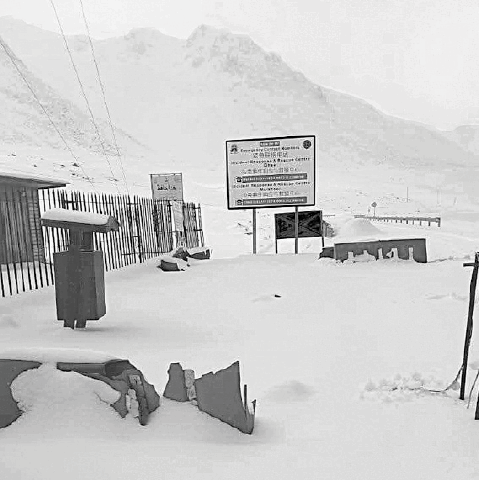Gilgit: The upper areas of Gilgit-Baltistan received on Saturday the first snowfall of the season, which is seen as a positive signal after years of late snowfall linked to climate change that has interrupted the fragile ecosystem and worried local communities.
The lower areas received rain scattered on Friday and Saturday, which caused a notable temperature drop. According to the locals, the areas located above 12,000 feet, including Khunjerab Top and Babusar Top, received the first snowfall of the season. The snow -covered landscape pushed temperatures below the freezing.
The tourist police said that traffic in Babusar Top had been closed at night due to the fear of slippery conditions. The Babusar road, which generally remains open from June to November, is a key route for tourists and local passengers traveling between Gilgit-Baltistan and other parts of the country.
Similarly, the upper Khunjerrab area also received up to three inches of snowfall, interrupting trips for vehicles that move between Pakistan and China through the Khunjerrab pass. Many divisions areas of Gilgit, Hunza, Nagar, Diamer, Astore and Baltistan received scattered rain, which forced residents to wear hot clothes and make heating arrangements in the houses.
Gilgit-Baltistan experienced devastating floods this summer caused by the rapid melting of the glacier, the flood floods of the glacial lakes (Glof), the clouds and the landslides. More than 50 people, including tourists, lost their lives, while infrastructure, agricultural land, forests and private properties worthy of billions of rupees were destroyed.
In July, temperatures in Chillas rose to 48.5 ° C, the highest since July 17, 1997, when it reached 47.7 ° C. in Bunji, the temperature reached 46.1 ° C, the highest since 1971. Experts believe that the region, one of the most sensitive to the environment in the world, has been experiencing serious impacts of climate change in recent decades. During the last decade, the snowfall in GB have been delayed until the end of December or even March.
Experts warn that this change in climatic patterns prevents snow from being compacted on stable ice, and with the appearance of heat waves, unstable snow quickly melts, causing sudden floods and Glof events.
Said the director of the Gilgit-Baltistan Environmental Protection Agency (Gbepa) Khadim Hussain Sunrise This climate change has severely affected the fragile GB ecosystem, home of more than 8,000 glaciers, 30,000 glacial lakes, innumerable mountains and vast pastures.
He said that unplanned development, fast tourism and construction in forested areas and green belt are damaging the environment of the region. He emphasized the vulnerability of GB to climate change and its crucial role as the “Pakistan” Tower “, feeding the Indo River, which supports 70 percent of the country’s agriculture and 40 % of its hydroelectric energy.
Posted in Dawn, October 5, 2025








